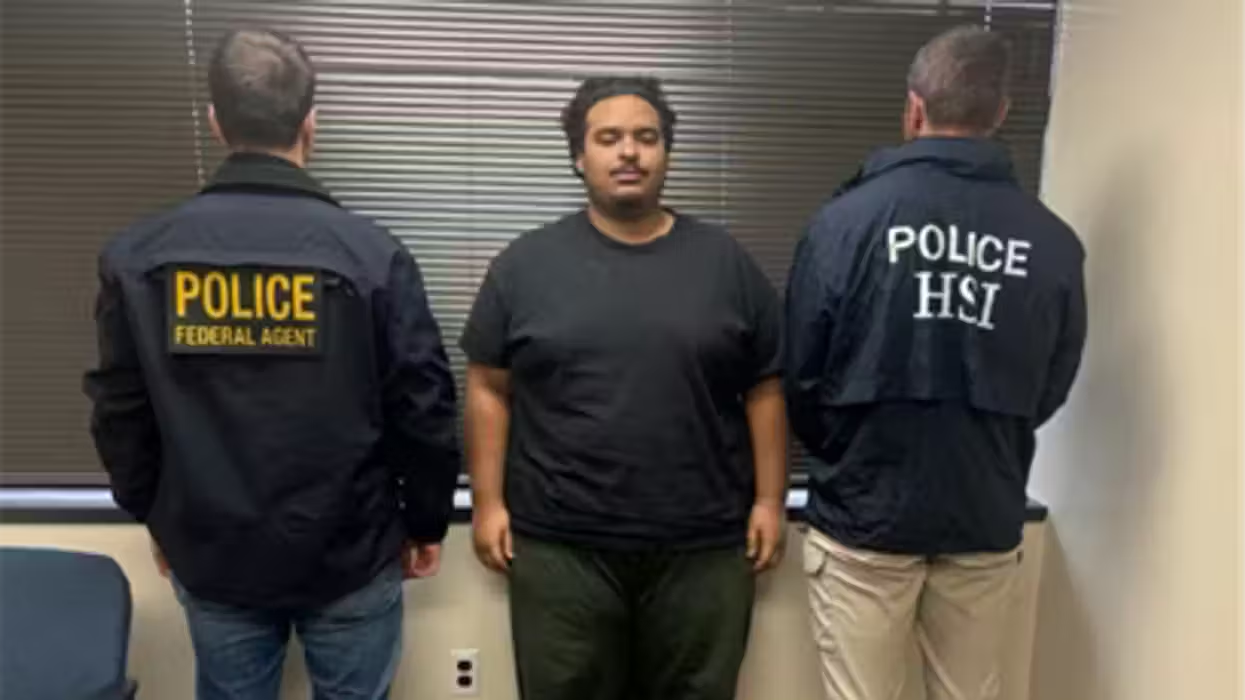
© 2025 Blaze Media LLC. All rights reserved.
When George Mason drafted the Virginia Declaration of Rights, which later served as the foundation for the Declaration of Independence and the Bill of Rights, could he have imagined his document being used to create super rights that never existed?
Case in point? Williams v. Pennsylvania.
In 1984, Terrance Williams was convicted of beating a man to death in Philadelphia with a tire iron and a socket wrench. After tying up the victim and killing him, Williams allegedly dumped gasoline on the body and burned it in a cemetery. Williams was tried and convicted by a jury of his peers and was sentenced to capital punishment. He was also convicted of third-degree murder for stabbing and torturing another individual six months earlier. As has been the case in our modern criminal justice system, Williams was able to spend the next two decades filing motion after motion, habeas petition after habeas petition for post-conviction relief. He was afforded his day in court on three separate occasions through 2005 in which his efforts were rebuffed by every layer of the Pennsylvania court system, and on one occasion, in federal court.
In 2012, Williams’s lawyers went for a fourth bite at the apple to toss out the conviction on a ridiculous technicality that they never felt was a problem for the first 25 years. The trial court finally agreed with him and stayed the execution, but the State Supreme Court upheld the sentence and laughed at the request for relief out of court. In comes Williams’s lawyers and sues in federal court to overturn the State Supreme Court’s ruling. The rationale? After appearing before the State Supreme Court four times over the past three decades, Williams asserted that one of the justices was required to recuse himself. Chief Justice Castille was the district attorney back in 1984 at the time of the murder and signed off on the state’s decision to seek the death penalty.
Let’s put aside the fact that Williams never raised the impartiality concern in the previous three cases before the State Supreme Court. The broader point is that Castille was not the prosecutor in the original criminal proceedings. He was the DA who signed off on the prosecutor’s decision to seek capital punishment. Now he was serving on the court, not in the criminal proceedings, but the multi-level endless post-conviction relief proceedings – a form of due process our Founders could never have imagined being applied to such an extreme to begin with. Moreover, as Justice Clarence Thomas notes, Williams filed an application for reargument with the State Supreme Court and that same panel denied the petition – after Castille had already retired from the court.
Yet, in a 5-3 ruling, with Justice Kennedy writing the opinion for the majority, the Supreme Court sided with Williams. They ruled that by Castille not recusing himself in that one layer of the post-conviction proceedings he had violated Williams’s Eighth and Fourteenth Amendment rights! They have now created a constitutional mandate for recusal that has never existed. Kennedy erroneously referred to Justice Castille’s “personal involvement as a prosecutor in a critical decision regarding the defendant’s case,” even though Castile was not a prosecutor; he merely approved the prosecutor’s decision to seek the death penalty 30 years prior to this post-conviction hearing.
Now back to our venerable founder, George Mason. Could he have imagined in his wildest dreams a man like Terrance Williams being allowed to evade capital punishment for over 30 years to begin with, much less apply the concepts of due process and cruel and unusual punishment to this question of recusal in such a parsimonious circumstance! Let’s face it: back in the times of our founders, an individual like Terrance Williams would have been executed within minutes of being tried by a jury of his peers.
One could debate the merits of Justice Castille’s decision not to recuse himself, but as Justice Thomas lamented in his dissent, how could something related to civil procedures be enshrined into the federal Constitution?
[R]ather than constitutionalize every judicial disqualification rule, the Court has left such rules to legislatures, bar associations, and the judgment of individual adjudicators. Williams, moreover, is not a criminal defendant. His complaint is instead that the due process protections in his state post-conviction proceedings—an altogether new civil matter, not a continuation of his criminal trial—were lacking.
This is part of a disturbing trend of the liberals in the federal judiciary tossing out the most basic state criminal justice laws and procedures and enshrining their outcomes-based jurisprudence into the federal Constitution. [See my earlier piece on Montgomery v. Louisiana and Foster v. Chatman] The notion that what happened to Williams was cruel and unusual and the notion that the Fourteenth Amendment, which was designed to grant existing liberties and property rights to freed slaves, and in the words of its drafters established “no new right” and declared no new principle,”[1] creates a new super-duper endless due process and right to force a recusal in this circumstance is scandalous.
Were the Fourteenth Amendment rights of all Americans violated when Justices Ginsberg and Kagan, who performed gay wedding services, refused to recuse themselves from the case that remade western civilization?
The point here is that even if we successfully fill Scalia’s seat with a like-minded originalist – no easy task in itself – there is still a 5-4 majority (and sometimes 6-3) that believes what is in the Constitution doesn’t exist and what is not in the Constitution is enshrined into the Fourteenth Amendment. Let’s not forget it was Anthony Kennedy who redefined not just marriage but the entire Constitution by declaring that the Fourteenth Amendment was “entrusted to future generations a charter protecting the right of all persons to enjoy liberty as we [meaning the unelected judges] learn its meaning.”[2]
Now juxtapose this case to Thursday’s Ninth Circuit ruling that individuals of the general public have no right to carry a firearm outside of their home for self-defense. The courts overturn state laws on criminal procedure or marriage that are not governed by the federal Constitution; they seek to constitutionalize every political, policy, and procedural issue in all 50 states, yet they allow state laws to stand that violate the manifest meaning of the most sharply written natural right – a right that predated the Constitution. Thus, Terrance Williams has a constitutional right to force this judge to recuse himself 30 years after he tortured two people to death, but I don’t have the right to carry a pistol outside of my home in Maryland during a time of record high crime (thanks to the war on the police).
This is the moral, intellectual, and constitutional dyslexia we will continue to get from the judiciary if we fail to implement judicial reform.
Want to keep up with what's going on in Washington without the liberal media slant, establishment spin, and politician-ese?
Sign up to get CRTV’s Capitol Hill Brief in your inbox every evening! It’s free!
Want to leave a tip?
We answer to you. Help keep our content free of advertisers and big tech censorship by leaving a tip today.
Want to join the conversation?
Already a subscriber?
Blaze Podcast Host
Daniel Horowitz is the host of “Conservative Review with Daniel Horowitz” and a senior editor for Blaze News.
RMConservative
Daniel Horowitz
Blaze Podcast Host
Daniel Horowitz is the host of “Conservative Review with Daniel Horowitz” and a senior editor for Blaze News.
@RMConservative →more stories
Sign up for the Blaze newsletter
By signing up, you agree to our Privacy Policy and Terms of Use, and agree to receive content that may sometimes include advertisements. You may opt out at any time.
Related Content
© 2025 Blaze Media LLC. All rights reserved.
Get the stories that matter most delivered directly to your inbox.
By signing up, you agree to our Privacy Policy and Terms of Use, and agree to receive content that may sometimes include advertisements. You may opt out at any time.






